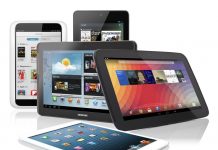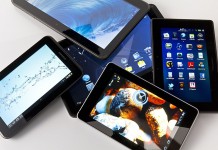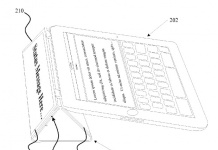 On the Music Machinery music technology blog, Paul Lamere takes a moment to reflect on e-book technology—particularly the Kindle and its Whispersync. Whispersync is the system for tracking where you are in a book so your Kindle or Kindle device or app can synchronize with any other Kindle devices or apps you own.
On the Music Machinery music technology blog, Paul Lamere takes a moment to reflect on e-book technology—particularly the Kindle and its Whispersync. Whispersync is the system for tracking where you are in a book so your Kindle or Kindle device or app can synchronize with any other Kindle devices or apps you own.
Lamere points out something that most Kindle users probably do not think about very often: with this system, Amazon knows not only what you are reading, but how you read it. Did you start a book and never finish it? Is there a particular passage you reread most often? Depending on how closely Whispersync tracks your interaction with the books, Amazon might be in a position to know these things and more.
It might be interesting, Lamere points out, if Amazon were to aggregate the data in the form of a number of charts. Which books are most abandoned, which books keep people reading the longest per reading session, and so on. He has a number of interesting ideas, and I must confess that I wouldn’t mind seeing charts like that myself.
“I’d rather not turn to the New York Times Best Seller list to decide what to read,” Lamere writes. “I want to see the Amazon Most Frequently Finished book list instead.”
This article brought something else to my mind. I remembered seeing articles this morning indicating that the next generation of iPhone might have a forward-facing camera. (And eventually the iPad might, as well.) And I remembered seeing articles about how a certain Gameboy DS app simulates 3D by using its forward-facing camera to track eyeball positioning and moving the screen to match.
So perhaps at some point e-book apps might be able to sneak peeks through that iPhone or iPad camera to track your eyeballs and see where you stopped reading to the very word.
On the one hand, this all might seem a little scary. And as David Rothman pointed out in 2007, any information the Kindle has about your reading habits could potentially be subpoenaed.
On the other hand, the information it provides could let Amazon (and possibly the publishers as well) create a more compelling reading experience that better suits the way people actually read. And there are probably safeguards against making the information individually identifiable.
In the end, people who trust Amazon will continue to use its devices while people who don’t will not.

































Well, publisher who already sell e-books as apps on iPhone also have this sort of data. I saw some charts at a conference in Brazil about e-book, yesterday (march 31), where a book about Obama was mostly read after lunch, while a book froma colombian author were read more often around 1 a.m.. Amazon is not alone in this sort of data retrieving.
And also, anyone thinks that Apple and iBooks will be different from Amazon, about this sort of thing? Once you’re connected to the network, you agree being monitored. If you don’t want to, just log off, If you can.
Since they will be using the “garbage in, gospel out” technique of data analysis, they are going to draw all sorts of bad conclusions. I, for example, use the search feature on one of my books to look up recipes. What are they going to conclude from a snapshot taken when I just happen to turn on the whispernet? I keep my whispernet off most of the time. If I got an iPad I would probably keep the wi-fi off while reading, one to keep from being interrupted and two to save battery power. I have not seen any reports on how well this device is shielded, but if it emits RF like a cell phone, then I for one do not want it resting on my family jewels. They are still working at age 78 and I would like to keep it that way.